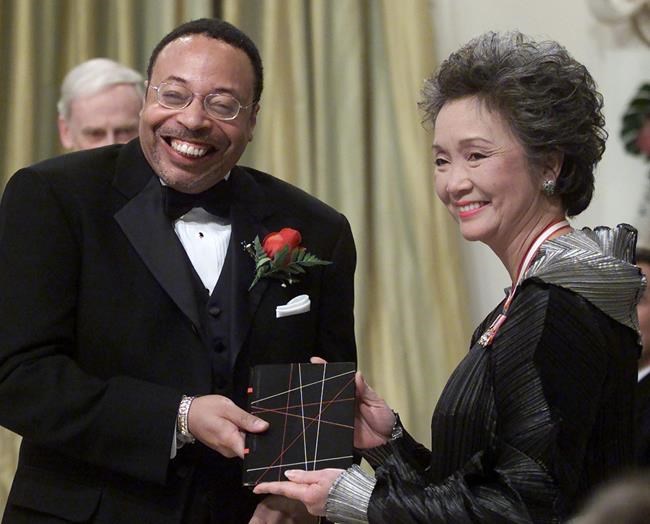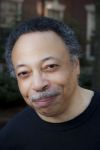‘Open wound:’ Talk by poet who worked with Indigenous woman’s killer to go ahead
Advertisement
Read this article for free:
or
Already have an account? Log in here »
To continue reading, please subscribe:
Monthly Digital Subscription
$0 for the first 4 weeks*
- Enjoy unlimited reading on winnipegfreepress.com
- Read the E-Edition, our digital replica newspaper
- Access News Break, our award-winning app
- Play interactive puzzles
*No charge for 4 weeks then price increases to the regular rate of $19.00 plus GST every four weeks. Offer available to new and qualified returning subscribers only. Cancel any time.
Monthly Digital Subscription
$4.75/week*
- Enjoy unlimited reading on winnipegfreepress.com
- Read the E-Edition, our digital replica newspaper
- Access News Break, our award-winning app
- Play interactive puzzles
*Billed as $19 plus GST every four weeks. Cancel any time.
To continue reading, please subscribe:
Add Free Press access to your Brandon Sun subscription for only an additional
$1 for the first 4 weeks*
*Your next subscription payment will increase by $1.00 and you will be charged $16.99 plus GST for four weeks. After four weeks, your payment will increase to $23.99 plus GST every four weeks.
Read unlimited articles for free today:
or
Already have an account? Log in here »
Hey there, time traveller!
This article was published 02/01/2020 (2142 days ago), so information in it may no longer be current.
REGINA – The University of Regina is being urged to cancel a lecture by a celebrated Canadian poet who has worked with an Indigenous woman’s killer, but the school says doing so would go against its principles.
George Elliott Clarke was invited to deliver the Woodrow Lloyd Lecture on Jan. 23. His talk is entitled “‘Truth and Reconciliation’ versus ‘the Murdered and Missing’: Examining Indigenous Experiences of (In)Justice in Four Saskatchewan Poets.”
The school says Clarke has edited poetry by Stephen Brown, who changed his name from Steven Kummerfield. Brown and his friend Alex Ternowetsky were convicted of manslaughter in the beating death of Pamela George near the Regina airport in 1995.

Brown was sentenced to 6 1/2-years and granted parole in 2000 in a case that underscored the racism Indigenous people in Saskatchewan face. He now lives in Mexico.
“It’s still such an open wound in our community,” Misty Longman, manager of the university’s ta-tawaw Student Centre, said Thursday.
“And maybe it wouldn’t be if there wasn’t still an ongoing crisis.”
A national inquiry last year said the disappearances and deaths of Indigenous girls and women in Canada amounts to genocide.
Longman said she and other Indigenous women urged the Woodrow Lloyd committee late last year to consider the harm Clarke’s lecture may cause.
“It was heartbreaking to leave at the end of the year knowing that that was still going to be going forward.”
In a statement, the university called Clarke a champion for social justice. His biography says he is a Nova Scotian of African American and Mi’kmaq descent.
Richard Kleer, dean of the faculty of arts, said neither the school nor Clarke condone Brown’s “heinous crime.”
“In fact, they both fully support the Truth and Reconciliation Commission’s calls to action, including publicly acknowledging and condemning any violence directed towards Indigenous women and girls in Canada. Having Clarke speak at the University is witness to that commitment,” Kleer said.
“Furthermore, and as a matter of principle, denying someone a speaking platform, or censoring their message, simply because they have had a working relationship with a convicted criminal goes against everything a university should stand for.”
Clarke, during his 2016-2017 tenure as parliamentary poet laureate, highlighted two of Brown’s works as “poems of the month” and likened him to Beats poets Jack Kerouac and Allen Ginsberg.
Clarke did not immediately respond to interview requests through the University of Toronto, where he teaches, or his publisher.
The university’s president, Vianne Timmons, responded to complaints on Twitter later Thursday, saying she had spoken with Clarke and he would not be presenting any of Brown’s work at the lecture.
Clarke “has heard peoples’ concerns and will not be citing any poet or poetry that will cause harm,” she said.
Darrel McLeod was one of several Indigenous writers and academics who registered their dismay on Twitter. McLeod, who won acclaim for his 2018 memoir “Mamaskatch: A Cree Coming of Age,” accused Clarke of “capitalizing” on his association with Brown.
Vancouver’s Massy Books also tweeted it would pull Clarke’s books from its shelves.
Heather Bear, vice-chief of the Federation of Sovereign Indigenous Nations, said she’s “disgusted, disheartened and hurt” that the university would consider allowing Brown’s work to be promoted — even indirectly.
Geography and environmental studies professor Emily Eaton quit the Woodrow Lloyd committee over the issue, writing in her resignation letter that there is not enough time to have conversations and healing before the lecture so it might contribute in some way to reconciliation.
“To go full steam ahead when we have been told to slow down and to reconsider is an example of where the university clashes with the kinds of Indigenous protocols and knowledge we claim to be incorporating, and even welcoming and celebrating.”
— By Lauren Krugel in Calgary, with files from Adina Bresge in Toronto
This report by The Canadian Press was first published on Jan. 2, 2020.





